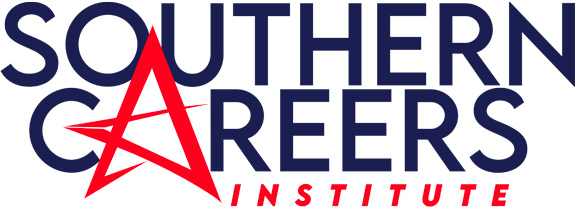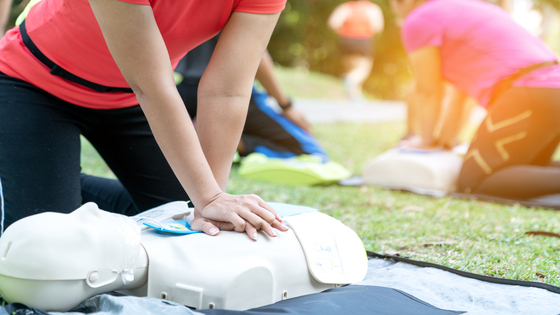Knowing basic CPR can help you save a life. But what is it and how do you learn it? Let’s take a look at the process to get CPR certification.
CPR is Important
Consider this situation: You’re enjoying an ecstatic basketball game with friends from the neighborhood. All of a sudden, one of your buddies crumples to the hard-court. You call out his name, but it’s all in futility. His face turns color- grey, blue, or something in between. At this point, you’re scared as hell and almost losing it. Acting out of impulse and with zero training skills, you dial 911 and wait with crossed fingers for help to arrive.
What if you had a little bit of training to avert the situation?
According to data from Mayo Clinic, the cardiopulmonary arrest is the leading course of deaths across the US, with more than 350,000 individuals succumbing to it every year.
It’s not all doom and gloom, however. Modern medicine has unleashed top-notch techniques to help revive patients ailing from sudden cardiac arrest.
After years of innovative scientific research, CPR has emerged as the flagship lifesaving technique. While many of the modern emergency procedures require complicated equipment or medical training, CPR needs zero additional devices.
If you would like to be CPR certified, you have to possess the know-how and skills to provide timely assistance in fatal situations like the one above.
In this article, we delve into the basics of this first-aid procedure plus how you can enroll for CPR training in Texas.
What is CPR?
Sudden cardiac arrest typically causes the heart to stop pumping blood. This is as a result of ventricular fibrillation, which leads to heart convulsions. So how is CPR intervention crucial?
CPR delivers small tons of blood to the heart, which keeps both the body and brain going until defibrillation can occur. Averting fibrillation means applying shock to the heart for it to resume normal functioning.
What does CPR stand for?
You may have a few tips up your sleeves about CPR, that’s alright. But here’s what you didn’t know.
CPR stands for Cardiopulmonary Resuscitation. It is an emergency technique consisting of chest compression and mouth-to-mouth respiration.
Powered by rescue breaths, it allows oxygenated blood to flow to essential body organs such as the heart and the brain.
It is particularly vital because if blood flow halts, death or permanent brain damage can occur within minutes, or worse, in a matter of seconds!
The History
While CPR has been around for ages, it was not until recently that its lifesaving prowess was truly appreciated.
New guidelines crafted every year aim to polish it, and rightly so, Cardiopulmonary Resuscitation is more useful now more than ever.
Still, brace yourself for surprises.
This technique has been in existence since 1740 when the Paris Academy of Sciences recommended its use for mouth-to-mouth revival of drowning victims.
However, its mega breakthrough came in 1956. While it was in 1891 that Chest Compression got its official documentation, it took another six decades for CPR to get approval for use by doctors.
CPR for healthcare providers, to some extent, paved the way for the training of the typical citizen.
What is CPR Certification?
The survival of a sudden cardiac arrest patient depends on an individual having the required First Aid & CPR training.
Certification in both of these fields will keep you abreast of life-threatening situations, giving you the confidence and skill to handle them.
Not sure about how to go about receiving certification? How long does the training last? Where and how do you get certification? Let’s walk you through the nitty-gritty.
Who Needs CPR Certification?
Knowing why it is important is one thing, and getting an online course for CPR is another. In the same vein, lack of a CPR requirement at work shouldn’t be your excuse for not learning this crucial life skill.
There is a growing list of professions in Texas that require CPR certification. Those responsible for the elderly, the children, or anyone else incapable of taking care of themselves, should consider training.
Also, that could be someone in a job that requires them to be around live electrical wires, water, or any other hazardous venture.
Healthcare providers, doctors, nurses, sheriffs, police, rescue personnel, firefighters, or any other emergency respondents require an up-to-date certification as part of their job description.

Training in Texas takes your CPR knowledge a notch higher, such that your certification is always current.
Other complex medical fields require advanced CPR training, which may include two-person procedures or the use of resuscitation equipment.
Other professions that may need CPR certification include:
- Bus drivers
- Baby-Sitters
- Boy Scout leaders
- Camp Counselors
- Hunting Guides
- Nursing Home Employees
- Lifeguards
- Daycare Staff
- Flight Attendants
- Whitewater Guides
- Prison Personnel
Irrespective of the kind of work you indulge in, you should have certification because 85% of sudden cardiac arrests occur at home.
There’s no worse feeling than not knowing what to do in an emergency.
How Long Does CPR Certification Last?
To be certified, you MUST enroll for certification courses via the American Heart Association or the Red Cross.
At the end of the training, you will obtain a course completion card that verifies your capability to perform a CPR. Your certification will typically last for two years before expiry.
Certification or re-certification depends on whether or not you want to take a blended learning course. This allows you to study online first, then proceed to complete hands-on training.
Alternatively, you can look for a class within your area that offers basic life support training.
How to Get CPR Certified in Texas
Red Cross and the American Heart Association are just but some of the platforms where you can get CPR certification in Texas.
They can equip you with the skills you need to help patients during emergency and breathing difficulties.
Whether online, via blended Simulation Learning experience, or in person, it’s important to register for First Aid & CPR certification that suits your learning style and schedule.
Medical Training Programs at SCI
At Southern Careers Institute, we are more than just a typical training college. On the backdrop of SCI Edge, we utilize employer-tailored programs to ensure that all our students are marketable in their respective niches.
The acceptance rate here is unrivaled, too. Thanks to our accredited programs, you get to earn electronic badges that make you a standout candidate whenever you are looking for a job.
Count on us to deliver cutting-edge training in the following fields:
- Business
- Beauty
- Medical
- Technology
- Skilled Trades
- Online
Our Medical programs -including CPR training– allow you to sit for over 20 recognized certifications. And because we are always looking to be technologically savvy, our training techniques will help you become the best of the best.
Start your new future with SCI and apply today!
Sources
- https://www.redcross.org/local/texas/take-a-class/cpr
- https://wvumedicine.org/news/article/why-is-cpr-training-important/
- https://www.emergencyfirstresponse.com/who-should-get-basic-first-aid-and-cpr-training/
Blog Disclaimer: Information stated in this blog is for general information purposes only. SCItexas.edu does not assume or guarantee income earning potential or salary expectations based on the programs offered at Southern Careers Institute. Career and program information stated in this blog does not guarantee that programs and specifics are offered at Southern Careers Institute.
This article was published on: 05/14/20 8:00 AM
* SCI does not guarantee employment or a starting salary upon graduation, completion, or withdrawal from SCI. As an accredited post-secondary institution, SCI has various federal financial assistance programs available for students who qualify and are enrolled in SCI programs. This does not apply to seminar students.
GI Bill® is a registered trademark of the U.S. Department of Veterans Affairs (VA). More information about education benefits offered by VA is available at the official U.S. government Web site at http://www.benefits.va.gov/gibill.

